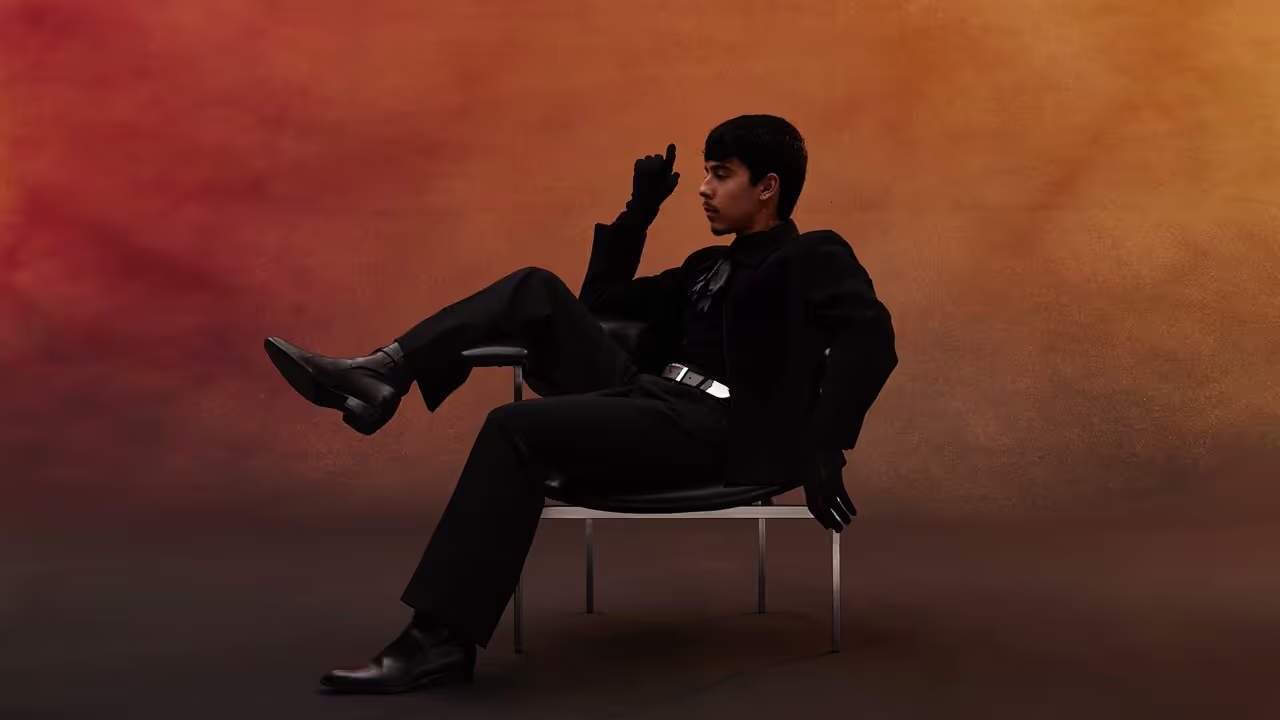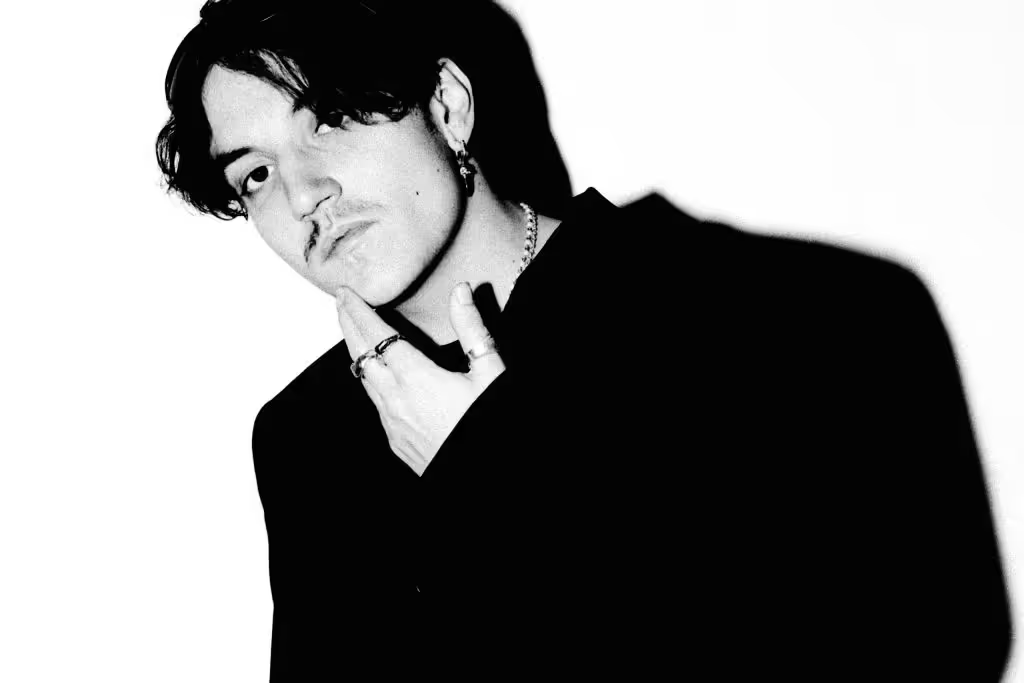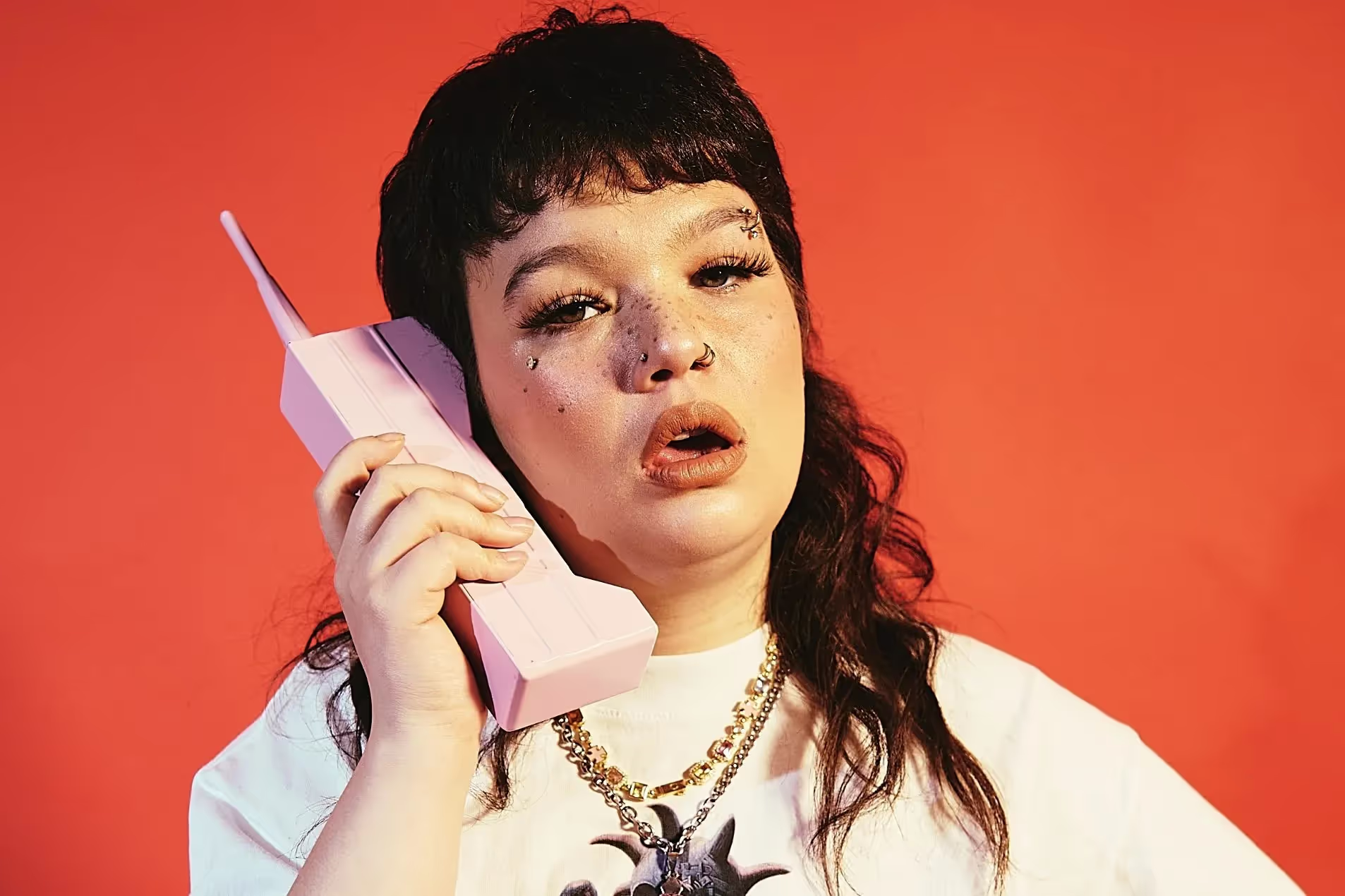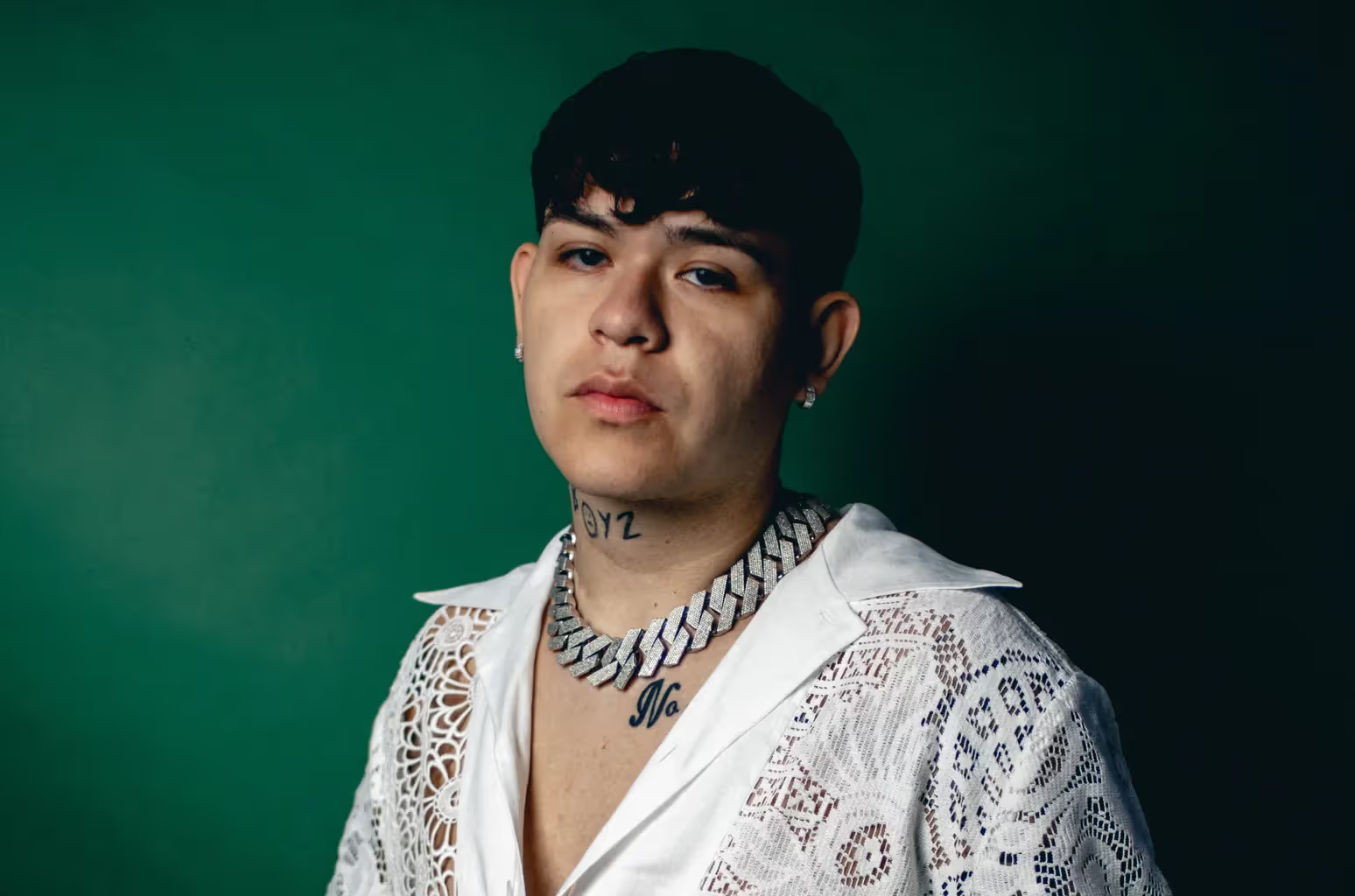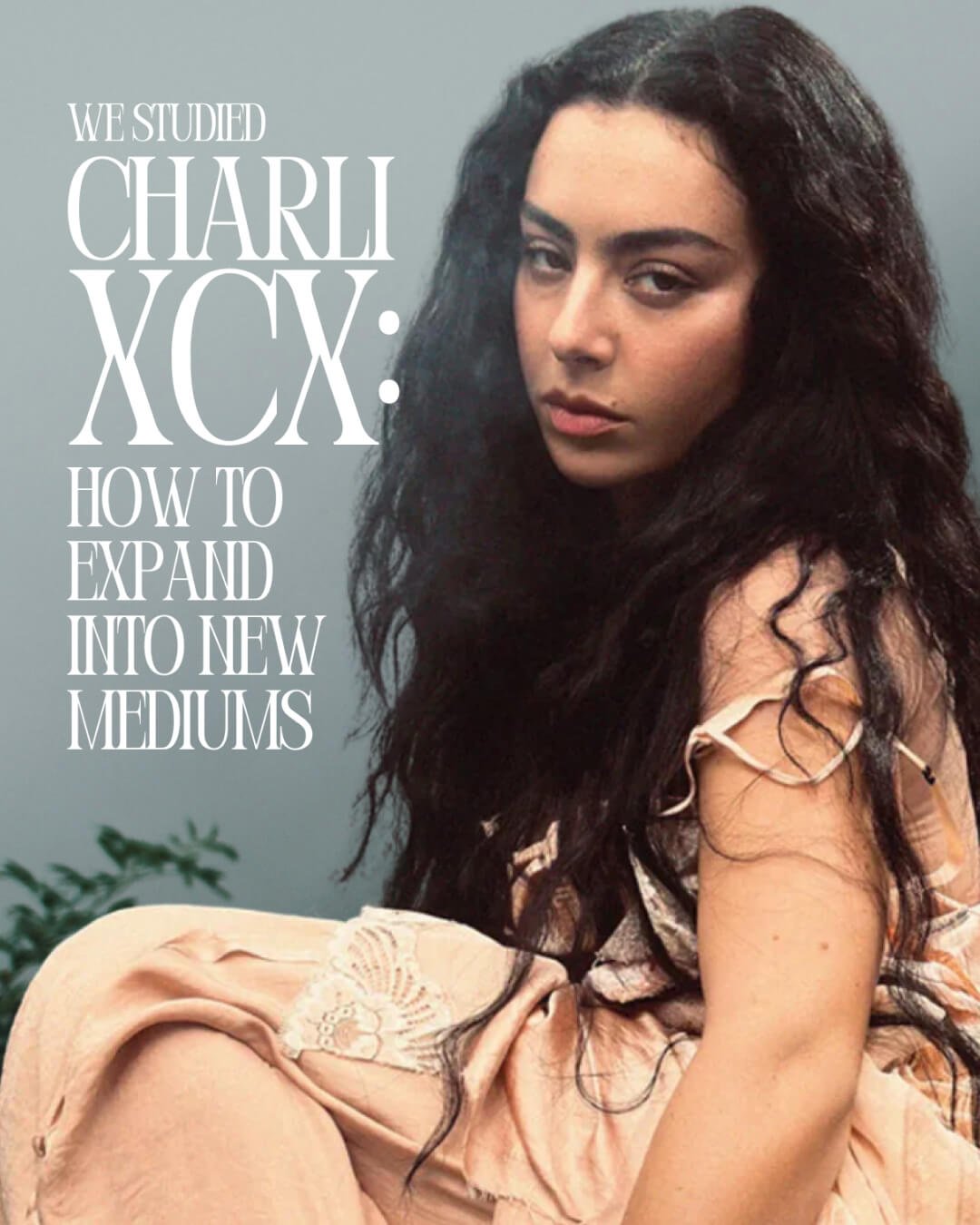.avif)
Should You Use Platforms Like Playlist Push to Promote Your Music?
In today's music industry, playlist placements can make or break an artist's career. With streaming platforms like Spotify shaping music discovery, landing a spot on the right playlist can significantly increase an artist's visibility and fanbase. For independent musicians navigating the music business without the backing of major labels, playlist promotion services like Playlist Push have become essential tools for getting their music heard.
However, it’s important to understand the risks of using these tools as DSPs (Digital Service Providers) increasingly crack down on practices that result in artificial streams. In this guide, we’ll explore everything you need to know about Playlist Push, how to effectively run a playlist push campaign, and the strategies to maximize its potential while minimizing the risks.
<"BODY-CTA">
What is Playlist Push?
Playlist Push is a service designed to help artists promote their new music by connecting them with playlist curators on streaming platforms like Spotify. The platform allows artists to submit tracks for playlist consideration, aiming to get their music placed on curated playlists that can drive streams and grow their audience. By targeting playlists with active listeners, artists can gain exposure, increase streams, and potentially reach new fans.
While Playlist Push can be a powerful promotional tool, artists should approach it with caution. If your track lands on playlists that don’t have engaged listeners, or worse, if the playlist engages in questionable practices like using bots, it could result in penalties from streaming platforms, including stream wipeouts, content takedowns, or even account suspension. This is why it’s crucial to ensure that the playlist curator you're working with is legitimate.

How Does a Playlist Push Campaign Work?
Running a Playlist Push campaign involves a few straightforward steps, but understanding the nuances can help you get the most out of the service while safeguarding against risks:
Submit Your Song: Start by submitting your track to Playlist Push. Make sure it's already live on Spotify, as the platform needs a link to your Spotify profile and track. Be mindful that songs submitted to questionable Spotify playlists might trigger Spotify’s anti-bot algorithms, which could flag your track for suspicious streaming activity.
Target the Right Audience: Playlist Push allows artists to target specific genres and styles, which helps in reaching the curators most likely to appreciate and promote the song. Choosing curators that align with your genre can help mitigate the risk of your track landing on low-quality or inactive playlists, which could lead to negative repercussions.
Campaign Set-Up: Once the song is submitted, Playlist Push creates a curated list of playlist curators based on your music’s genre. However, it’s important to note that not all playlists have the same level of legitimacy. Be cautious of playlists with artificially inflated follower counts, as inclusion on these playlists could harm your reputation or, worse, get your account flagged by DSPs.
Receive Feedback and Placements: As the campaign runs, curators listen to the track and decide whether to add it to their playlists. Artists can also receive feedback from curators, which can be insightful for improving future releases. However, remember that not all curators operate ethically, so pay close attention to where your song ends up.
Final Report: At the end of the campaign, Playlist Push provides a detailed report outlining which playlists added the track, the number of streams generated, and curator feedback. This is where you can analyze whether your track was placed on credible, high-quality playlists, or if there’s potential risk from being included on suspicious ones.
Is Playlist Push Legit?
One of the most common questions about Playlist Push is whether it's a legitimate service. The short answer is yes—it operates within Spotify’s guidelines by ensuring curators are paid for their time reviewing submissions, not for guaranteed playlist placements. However, that doesn’t mean there aren’t risks involved.
Even though Playlist Push itself doesn’t engage in fraudulent practices, some playlist curators in the network may. There’s always the possibility that your song could end up on a playlist filled with bots or inactive listeners. Artificial streams, even if unintentional, can have serious consequences, including permanent bans from streaming platforms. Always do your due diligence and monitor where your music is placed.

The Risks of Using Playlist Promotion Tools: A Word of Caution
While Playlist Push and similar services can boost streams and visibility, there are inherent risks, especially as DSPs like Spotify aggressively combat artificial streams. If your music is detected on playlists with unnatural engagement patterns, you could face significant consequences such as:
Playlist Removal: If Spotify flags your track for suspicious streaming activity, your song could be removed from playlists without notice.
Stream Resets: In some cases, DSPs like Spotify may take down your music without warning if they detect a significant proportion of artificial streams compared to organic ones. Although the specific thresholds for this action aren't publicly disclosed, it’s believed that DSPs use a ratio to assess the balance of artificial streams versus organic streams on a month-over-month basis. This can be especially damaging if you’re close to hitting important milestones, such as being featured on algorithmic playlists. Once your content is flagged and removed, it can be difficult to recover the momentum you’ve built.
Permanent Account Ban: In the worst-case scenario, Spotify could ban your artist account entirely if you're found engaging in stream fraud. This would mean losing access to your entire discography and fanbase on the platform, and it can be extremely difficult to recover from such a penalty. This could set your career back significantly, especially for independent artists who rely on streaming for both revenue and exposure. Additionally, stream fraud is grounds for Venice account termination, as stated in the Terms of Service, and the same applies to many other distributors. Engaging in artificial streaming practices not only jeopardizes your standing on streaming platforms but also with your distribution partners, making it crucial to avoid any tactics that might be perceived as fraudulent.
Venice’s Experience with Playlist Push: A Deeper Look
Now that you thoroughly understand the substantial risks associated with a tool like Playlist Push we can share some of the the positive outcomes it can generate when used strategically. At Venice, we've had substantial success leveraging Playlist Push as part of a broader marketing approach for our artists. Our experiences show that when combined with other marketing tactics and careful planning, Playlist Push can significantly drive growth in streams, exposure, and fan engagement.
Alyssa Sarti, Marketing Director at Venice, shares her insights on how our artists have benefited from Playlist Push campaigns:
"Our experience has been great. For Lloaded, the campaign increased his monthly listeners to 100K (at peak), and this boost helped support our pitch to Spotify for Editorial playlist placements. On another artist, Leyo, the campaign increased his average weekly streams, contributing to the overall success of his music promotion strategy. I've found that Playlist Push is most effective when timed alongside other marketing efforts, such as a TikTok campaign, an EP release, or new content drops. Running these campaigns in parallel creates momentum that amplifies the effectiveness of the playlist placements."
Alyssa emphasizes that the feedback from playlist curators is another invaluable aspect of Playlist Push. Artists have used this feedback to refine their music and marketing strategies, which not only improves future campaigns but also shapes their creative direction.
"Artists often find the feedback from playlist curators to be insightful, helping them think about what works in terms of audience engagement. This feedback can be invaluable when they’re planning their next releases."
Jamal Jimoh, Head of Hip-Hop + R&B Streaming at Venice, also highlights the importance of authenticity and real fan engagement in playlist campaigns:
"It serves their music to real fans, driving genuine listenership and helping to sustainably increase audience and streams. When artists and label marketing teams take a look at the backend, there’s a genuine lift—unlike bot farm tracks, where it looks like the record was shot out of a cannon before falling off a cliff."
Jamal’s point underscores a key advantage of Playlist Push: when used responsibly, it reaches real listeners, allowing for organic growth over time. This genuine listenership, combined with increased streams, helps artists build a solid foundation for long-term success, rather than a temporary spike in streams followed by a rapid drop-off.
How Venice Strategically Uses Playlist Push
At Venice, we don’t just rely on Playlist Push as a one-off tool. Our strategy involves integrating Playlist Push into a larger marketing ecosystem that ensures the maximum impact of each campaign.
Here’s how we incorporate it into our overall marketing efforts:
Campaign Timing and Synergy:
We’ve found that the best results come when Playlist Push campaigns are run in tandem with other key marketing initiatives. This includes EP or album releases, TikTok challenges, social media ads, influencer partnerships, and media campaigns. By creating multiple touchpoints, we ensure that the audience exposed to a track on a playlist sees it reinforced across various platforms, enhancing the overall effect.
For example, with Lloaded, we timed the Playlist Push campaign to coincide with the release of new music content and TikTok marketing efforts, creating a wave of momentum. This approach not only increased his monthly listeners but also strengthened the pitch to Spotify’s editorial team, ultimately leading to even more exposure through editorial playlists.
Curator Feedback as a Creative Tool:
Playlist Push allows artists to receive feedback from curators on why they did or did not choose to add the song to their playlists. We encourage our artists to use this feedback as a creative tool to refine their music or promotional strategies. Whether it's adjusting the mix, focusing on different elements in production, or targeting a slightly different genre for future campaigns, this feedback can be invaluable for artist development.
Backend Data Analysis for Sustained Growth:
One of the things we emphasize at Venice is data analysis. After each Playlist Push campaign, we look at the backend analytics—how much the artist's streams increased, the engagement levels, and whether the lift in streams sustained over time. We don't just want to see a one-time spike; we aim for gradual, organic growth that continues beyond the initial campaign.
Jamal’s point about avoiding “bot-farm-like” results is key here. Playlist Push, when used correctly, shows a steady increase in streams rather than a sudden rise followed by an immediate drop-off. This indicates that real listeners are engaging with the music, and this engagement continues over time.
Combining Playlist Push with Traditional and Digital Marketing:
At Venice, we combine Playlist Push with a variety of digital and traditional marketing tactics. This includes using social media ads to promote the song further, leveraging influencer marketing to create organic buzz, and targeting press outlets for additional exposure. By diversifying the promotional efforts, we ensure that our artists' music reaches the widest possible audience while maintaining authenticity.
How to Minimize the Risk of Artificial Streams
To minimize the risk while using Playlist Push or other playlist promotion services, follow these best practices:
Vet Playlists Carefully: Before launching a campaign, it's essential to research the playlists you’re pitching to. Look for genuine engagement, such as active social media communities or consistent listener interaction on tracks within the playlists. We recommend using tools like Artist.Tools, a platform that helps artists evaluate playlist credibility before submitting their music. It provides detailed analytics to identify whether a playlist has active listeners or if it’s using bots. Utilizing a tool like artist.tools in tandem with a playlist promotion tool, may help you avoid low-quality playlists that can put your campaign at risk and potentially lead to penalties from DSPs like Spotify.
Avoid Services That Guarantee Streams: Services that promise a certain number of streams or guaranteed placements are often operating against DSP guidelines and should be avoided. Playlist Push doesn’t guarantee placements, which aligns with ethical promotion practices, but you should still ensure the curators are authentic.
Monitor Your Campaign: Pay close attention to where your track ends up during and after the campaign. If you see unnatural spikes in streams or suspect a playlist of engaging in shady practices, ask Playlist Push for clarification or request removal from that playlist.
Alternatives to Playlist Push
There are other platforms that provide similar services to Playlist Push, (SubmitHub or Groover) for playlist pitching, but it’s important to note that many of these alternatives come with similar risks—such as the potential for artificial streams or low-quality playlists—that could harm your music career if not carefully managed. Instead a safer option may be direct outreach. While time-consuming, reaching out to curators individually can be effective, especially if you build a relationship with them. The personal touch can sometimes make the difference.
Organic Playlists vs. Paid Playlist Campaigns
It's important to understand the difference between organic playlists and paid playlist campaigns like those offered through Playlist Push:
Organic Playlists: Many playlists feature songs that curators add because they enjoy the music, not because they were paid to review it. Getting on organic playlists usually leads to more authentic engagement, as the listeners are genuinely interested in the music.
Paid Playlist Campaigns: Playlist Push provides a paid opportunity to pitch your music to curators. Although the placements aren’t guaranteed, there’s still a risk of landing on low-quality playlists that could trigger warnings from DSPs. Ensure you’re targeting curators who align with your genre and have legitimate playlists to minimize this risk.
How to Target the Right Spotify Playlist Curators
A crucial aspect of running a successful Playlist Push campaign is targeting the right playlist curators.
Here are some tips to help you do that while avoiding potential pitfalls:
Focus on Genre Alignment: Target playlists that fit your sound. If your music doesn’t fit, it’s more likely to get added to irrelevant playlists that rely on bots for streams, putting you at risk of being flagged by DSPs.
Research Curators:Before starting your campaign, look into the curators’ history. Do they run legitimate, well-followed playlists, or do they have an inconsistent track record? You can do this with tools like artist.tools to check the quality of curators before you work with them.
Can a Playlist Push Campaign Get You Active Listeners?
The ultimate goal of using Playlist Push is to attract real, engaged listeners who will continue to support your music. While playlist placements can certainly help in this regard, they don’t guarantee long-term growth—especially if the playlists you’re placed on don’t have active or organic followers. Be mindful that low-quality playlists could harm your reputation more than they help.
Should You Use Your Marketing Budget for Playlist Push?
Investing your own money in a Playlist Push campaign can be a daunting decision for independent artists. Since there’s no guarantee of placements, and even less certainty about the quality of those placements, it’s important to weigh the potential risks and rewards.
Evaluate the Risk: If you choose to fund a campaign out-of-pocket, you must be prepared for the possibility of your song landing on low-quality or suspicious playlists, which could negatively impact your career. Make sure it's a financially viable decision, especially if you're promoting a new song that you want to get traction.
Start Small: Consider starting with a smaller campaign to gauge results and mitigate risk. This approach allows you to test the waters without a significant financial commitment.
Save by Using an Affiliate Link: If you’re concerned about the financial commitment, you may be able to reduce costs by using an affiliate link. Many platforms and influencers offer affiliate links for services like Playlist Push, which can give you a discount on your first campaign. This could be a useful way to test the service at a reduced rate while seeing if it’s the right fit for your promotional strategy.
The Pros and Cons of Using Playlist Push
While Playlist Push offers many advantages, including access to a wide network of curators, there are risks that artists must consider:
Pros
Direct Access to Curators: Playlist Push gives artists a way to pitch their music to a network of playlist curators.
Targeted Promotion: Artists can select genres and target curators who align with their musical style.
Feedback and Reporting: Curators' feedback and campaign reports help artists understand what worked and what didn’t.
Cons
No Guaranteed Placements: Even with a paid campaign, there’s no assurance that curators will add your track. Some curators may use bots or have inactive audiences, which can lead to artificial streams and risks of penalties from DSPs.
Costs Can Add Up: Running multiple campaigns or targeting a large number of curators can be costly, especially if you're funding promotion with your own money. Additionally, the cost won’t justify the results if your song gets added to low-quality playlists.
Curator Quality Varies: Some playlist curators may provide great exposure, while others can be questionable. The quality and legitimacy of playlist placements can vary widely, impacting the overall success of your campaign.
Playlist Push Campaign Process
On Playlist Push, you begin by filling out a brief application with basic information, including your song/artist name, social link, hometown, and more.

Playlist Push Application Page
Once accepted, you'll be directed to a targeting page. Here, you can use AI targeting to auto-populate genres (available if your song is already released) or manually search for genres.
If you're unsure about a genre, you can click 'Listen' on the right side to hear an example.

Playlist Push Targeting Page
Playlist Push leverages your genre selections to scan over 4,000 playlists in its network, ensuring your music is matched with the most relevant curators. By analyzing each song in these playlists, Playlist Push identifies the curators most likely to appreciate your music, enhancing your chances of securing a placement.
After setting your targeting, you'll proceed to the 'Favorites' page, which is available if you've previously run a Playlist Push campaign. If you've used Playlist Push before, you can target playlists that have previously featured your track.

Playlist Push Favorites Page
Once you've made your selection(s), the next step is to set your campaign budget. This budget will determine the estimated number of playlists and curators your song will reach.

Playlist Push Budget Page
After setting your budget, navigate to the campaign review page. Carefully examine all aspects of your campaign, and when everything looks good, click 'Proceed to Payment' to continue.

Playlist Push Campaign Review Page
Once your Playlist Push campaign launches, curators have up to 14 days to review your song. If a curator decides to feature your song, you will be notified via email with all relevant placement information
.
Best Practices for Running a Playlist Push Campaign
Optimize Your Spotify Profile Before the Campaign: Make sure your Spotify profile is fully optimized with an updated bio, social links, and high-quality artwork. This can increase the chances of curators taking your submission seriously.
Submit High-Quality Music: Make sure the track you’re submitting is mixed and mastered to a professional standard. Poorly produced songs are less likely to be picked up by curators.
Target the Right Genre: Make sure you’re submitting your song to the right selected genres. Targeting curators outside your genre will likely result in poor campaign performance.
Conclusion: Is Playlist Push Right for Your Music Career?
Playlist Push can be a valuable tool in your music promotion strategy, especially if you're an independent artist looking for exposure on curated Spotify playlists. It offers a structured way to reach curators, gain feedback, and potentially boost your streams.
However, like any promotional tool, it's essential to approach it with caution. The risks of artificial streams, low-quality playlist placements, and potential penalties from DSPs should always be factored into your decision.
For best results, if you decide to use Playlist Push, make sure you utilize it as part of a larger, well-rounded marketing strategy. Combine it with direct outreach, social media engagement, live performances, and other organic promotional methods to build a fanbase that will support you long-term.
Finally, if you're ready to take your music promotion to the next level, consider joining the Venice Pro Membership. You'll gain access to a variety of tools and resources designed to help you grow your career sustainably, providing the support and insights you need to succeed in the competitive music industry.
Do you have a plan for your release? We’ll make you one.
Do you have a plan for your release? We’ll make you one.
You may also want to read...
LABEL-LEVEL ROLLOUT STRATEGIES
.svg)
